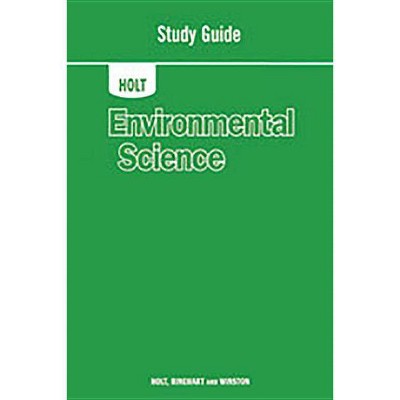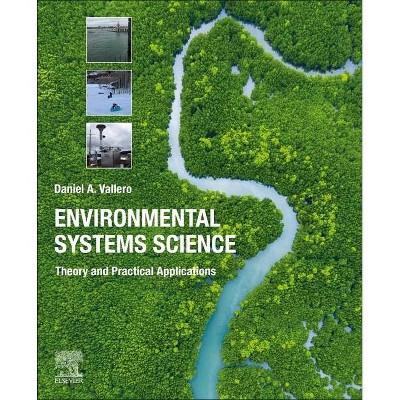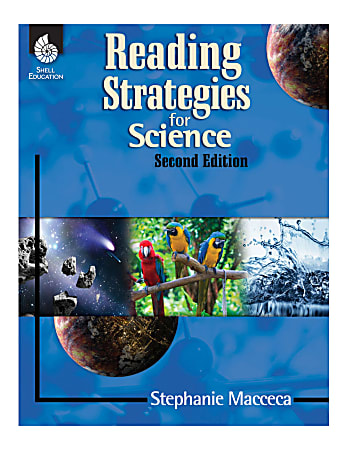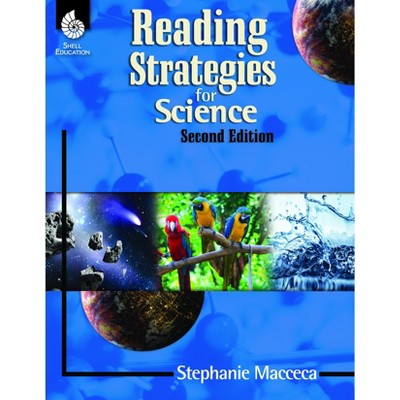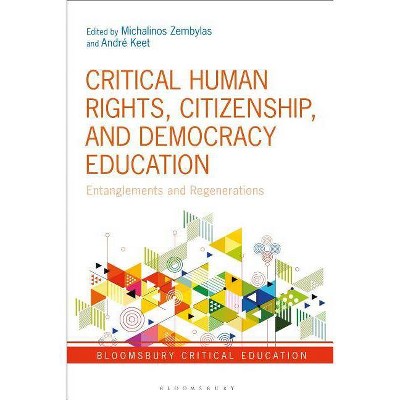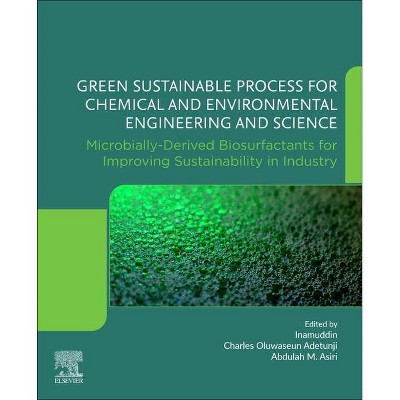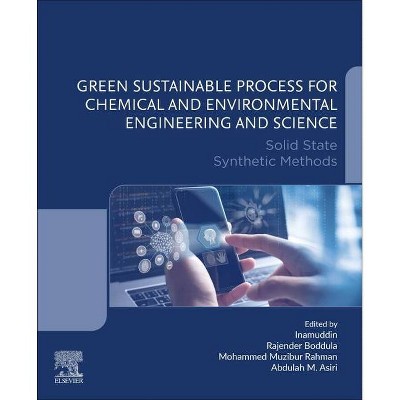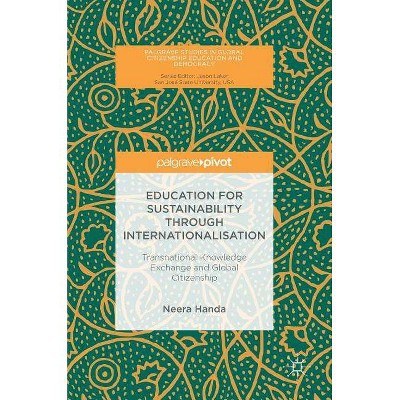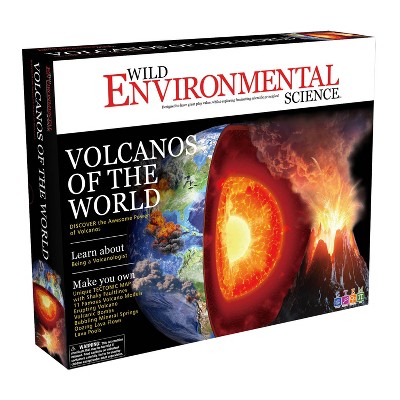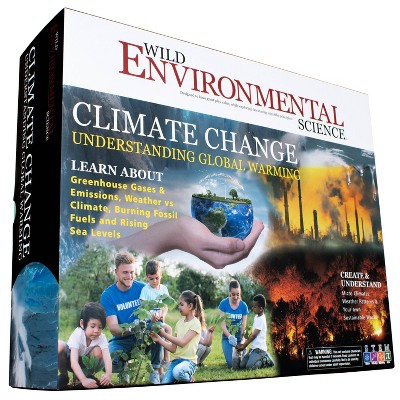Conceptualizing Environmental Citizenship for 21st Century Education - (Environmental Discourses in Science Education) (Paperback)
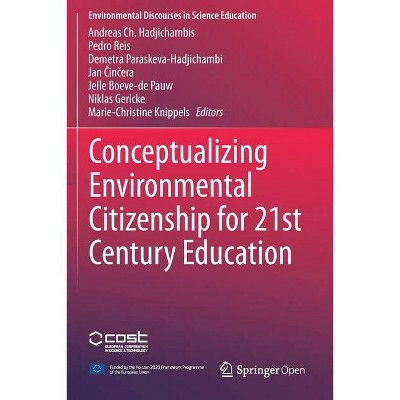
Similar Products
Products of same category from the store
AllProduct info
<p/><br></br><p><b> Book Synopsis </b></p></br></br>Introduction to the conceptualisation of Environmental Citizenship for twenty-first century education; Andreas Ch. Hadjichambis, Pedro Reis.- PART I: Political, Economic and Societal Dimensions of Environmental Citizenship.- Political dimensions of Environmental Citizenship; Ralph Levinson, Demetra Paraskeva-Hadjichambi, Bjorn Bedsted, Boris Manov, Andreas Ch. Hadjichambis.- Economic dimensions of Environmental Citizenship; Vladislav Kaputa, Katharina Lapin, Florian Leregger, Haris Gekic.- Societal Issues and Environmental Citizenship; Ivan Sulc, Sofia Morgado, Zorana Đorđevic, Slaven Gasparovic, Vesela Radovic, Dilyana Keranova.- PART II: Environmental Citizenship as psychological construct.- Knowledge and Environmental Citizenship; Smederevac-Lalic, M., Finger, D., Kovách, I., Lenhardt, M., Petrovic, J., Djikanovic, V., Conti, D., Boeve-de Pauw, J..- Values, Beliefs and Environmental Citizenship; Audra Balunde, Mykolas Simas Poskus, Lina Jovarauskait, Ariel Sarid, Georgios Farangitakis, Marie-Christine Knippels, Andreas Hadjichambis, Demetra Paraskeva-Hadjichambi.- Attitudes and Environmental Citizenship; Nicole Bauer, Boldizsár Megyesi, Rares Halbac, Cristina Zamfir.- PART III: Environmental Citizenship in the context of Environmental Education and Education for Sustainability.- Education for Environmental Citizenship & Responsible Environmental Behaviour; Daphne Goldman, Ralph Hansmann, Jan Čincera, Vesela Radovic, Audrone Telesiene, Aiste Balzekiene, Jan Vávra.- Environmental Citizenship & Youth Activism; Pedro Reis.- Environmental Citizenship and Education for Sustainability; Gema Parra, Ralph Hansmann, Andreas Ch. Hadjichambis, Daphne Goldman, Demetra Paraskeva-Hadjichambi, Per Sund, Louise Sund, Niklas Gericke, Daniela Conti.- PART IV: Environmental Citizenship in Educational Levels.- Environmental Citizenship in Primary Formal Education; Jan Čincera, Marta Romero-Ariza, Mirjana Zabic, Marianna Kalaitzidaki, María del Consuelo Díez-Bedmar.- Environmental Citizenship in the Context of Primary Non-Formal Education; Jelle Boeve-de Pauw, Rares Halbac-Zamfir.- Environmental Citizenship in Secondary Formal Education - The importance of curriculum and subject teachers; Niklas Gericke, Lihong Huang, Marie-Christine Knippels, Andri Christodoulou, Frans van Dam, Slaven Gasparovic.- Educating for Environmental Citizenship in Non-Formal Frameworks for Secondary Level Youth; Demetra Paraskeva-Hadjichambi, Daphne Goldman, Andreas Ch. Hadjichambis, Gema Parra, Katarina Lapin, Marie-Christine Knippels, Frans Van Dam.- Education for Environmental Citizenship: the pedagogical approach; Andreas Ch. Hadjichambis & Demetra Paraskeva-Hadjichambi.<p></p><br><p/><br></br><p><b> From the Back Cover </b></p></br></br>This open access book is about the development of a common understanding of environmental citizenship. It conceptualizes and frames environmental citizenship taking an educational perspective. Organized in four complementary parts, the book first explains the political, economic and societal dimensions of the concept. Next, it examines environmental citizenship as a psychological concept with a specific focus on knowledge, values, beliefs and attitudes. It then explores environmental citizenship within the context of environmental education and education for sustainability. It elaborates responsible environmental behaviour, youth activism and education for sustainability through the lens of environmental citizenship. Finally, it discusses the concept within the context of different educational levels, such as primary and secondary education in formal and non-formal settings.<br>Environmental citizenship is a key factor in sustainability, green and cycle economy, and low-carbon society, and an important aspect in addressing global environmental problems. It has been an influential concept in many different arenas such as economy, policy, philosophy, and organizational marketing. In the field of education, the concept could be better exploited and established, however. Education and, especially, environmental discourses in science education have a great deal to contribute to the adoption and promotion of environmental citizenship.<p/><br></br><p><b> About the Author </b></p></br></br><b>Andreas Ch. Hadjichambis</b> is Chair of the European Network for Environmental Citizenship (Cost Action CA16229). He is the Scientific Director of the Cyprus Centre for Environmental Research and Education (CYCERE) and a Researcher in the Cyprus University of Technology. He is a biologist (Bsc) with MSc, MEd in education and a PhD. He is Biology Advisor and Coordinator of Environmental Education Programs. He participated in many European research projects and is a co-author of the biology books in Cyprus secondary education.<p><b>Pedro Reis</b> is Sub-Director and Associate Professor in Science Education at the Instituto de Educação, Universidade de Lisboa (Portugal). In addition to his PhD and MEd in education, he holds a BSc degree in biology. He has been involved in research, teacher training and curriculum development projects in Portugal, other European countries (supported by the European Commission), Africa (supported by the World Bank, Foundations and local Governments) and Latin America (supported by the Portuguese, the Brazilian and the Colombian Governments).</p> <p><b>Demetra Paraskeva - Hadjichambi</b> is head of Environmental Education Department of the Cyprus Centre for Environmental Research and Education (CYCERE). She is a biologist and holds a PhD in Environmental Education. She is working as a biology advisor in the Cyprus Ministry of Education and Culture. She participated in Biology Curriculum Committee in the framework of Cyprus Educational Reformation. She is a co-author of the Biology books in the Secondary Education of Cyprus. She has been a SCIENTIX Ambassador.</p> <p>Jan Činčera works as an Associate Professor at the Department of Environmental Studies, Faculty of Social Studies at Masaryk University, Brno, Czech Republic. He focuses on environmental education theory, research, and instructional strategies. His main interest lies in analyzing instructional strategies that help achieve the goals of environmental education. He is the author of more than twenty studies published in international journals, the national guidelines for evaluation of environmental education programs and books focusing on environmental education and interpretation.</p> <p><b>Niklas Gericke</b> is Professor in Science Education, and Director of the SMEER (Science, Mathematics and Engineering Education Research) research Centre at Karlstad University in Sweden and visiting professor at NTNU in Trondheim, Norway. His main research interests are biology education and sustainability education from conceptual, teaching as well as implementation perspectives. Other research interests include history and philosophy of science, models and representations in science, genetic education and textbook research.</p> <p><b>Marie-Christine Knippels</b> is an Assistant Professor in Science Education and has been head of the Biology education team at the Freudenthal Institute, Utrecht University, the Netherlands. She is a biologist, developed the 'yoyo-strategy', and holds a PhD in Genetics Education. She completed a postdoc research project (NWO) at RISBO, Erasmus University Rotterdam and serves as a member of the Academic Board of ERIDOB. She led the EU-FP7 PARRISE-project, and was partner representative in the SYNENERGENE project. </p>
Price History
Price Archive shows prices from various stores, lets you see history and find the cheapest. There is no actual sale on the website. For all support, inquiry and suggestion messagescommunication@pricearchive.us
